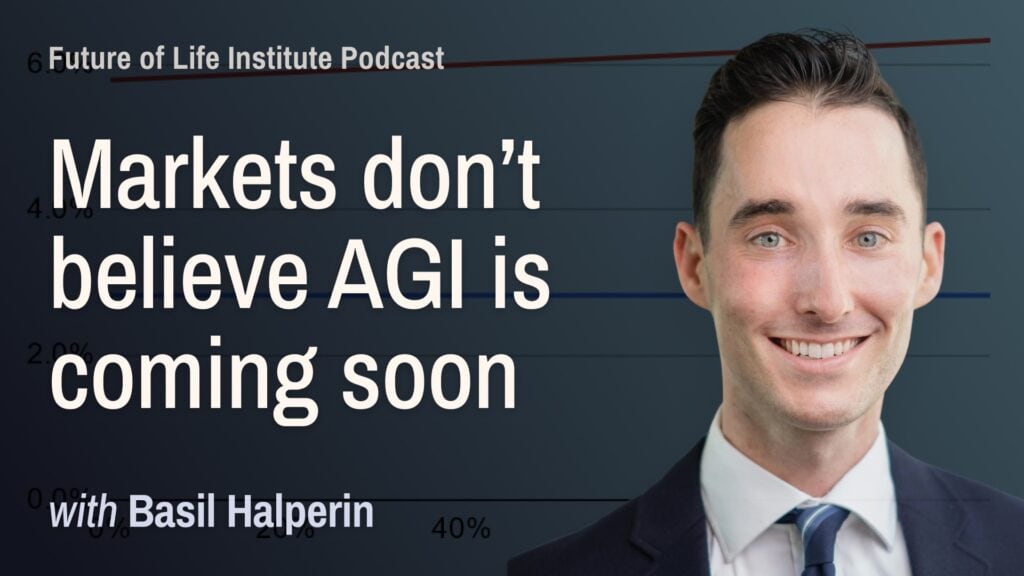2018 International AI Safety Grants Competition

Contents
I. THE FUTURE OF AI: REAPING THE BENEFITS WHILE AVOIDING PITFALLS
For many years, artificial intelligence (AI) research has been appropriately focused on the challenge of making AI effective, with significant recent success, and great future promise. This recent success has raised an important question: how can we ensure that the growing power of AI is matched by the growing wisdom with which we manage it? In an open letter in 2015, a large international group of leading AI researchers from academia and industry argued that this success makes it important and timely to research also how to make AI systems robust and beneficial, and that this includes concrete research directions that can be pursued today. In early 2017, a broad coalition of AI leaders went further and signed the Asilomar AI Principles, which articulate beneficial AI requirements in greater detail.
The first Asilomar Principle is that “The goal of AI research should be to create not undirected intelligence, but beneficial intelligence,” and the second states that “Investments in AI should be accompanied by funding for research on ensuring its beneficial use, including thorny questions in computer science, economics, law, ethics, and social studies…” The aim of this request for proposals is to support research that serves these and other goals indicated by the Principles.
The focus of this RFP is on technical research or other projects enabling development of AI that is beneficial to society and robust in the sense that the benefits have some guarantees: our AI systems must do what we want them to do.
II. EVALUATION CRITERIA & PROJECT ELIGIBILITY
This 2018 grants competition is the second round of the multi-million dollar grants program announced in January 2015, and will give grants totaling millions more to researchers in academic and other nonprofit institutions for projects up to three years in duration, beginning September 1, 2018. Results-in-progress from the first round are here. Following the launch of the first round, the field of AI safety has expanded considerably in terms of institutions, research groups, and potential funding sources entering the field. Many of these, however, focus on immediate or relatively short-term issues relevant to extrapolations of present machine learning and AI systems as they are applied more widely. There are still relatively few resources devoted to issues that will become crucial if/when AI research attains its original goal: building artificial general intelligence (AGI) that can (or can learn to) outperform humans on all cognitive tasks (see Asilomar Principles 19-23).
For maximal positive impact, this new grants competition thus focuses on Artificial General Intelligence, specifically research for safe and beneficial AGI. Successful grant proposals will either relate directly to AGI issues, or clearly explain how the proposed work is a necessary stepping stone toward safe and beneficial AGI.
As with the previous round, grant applications will be subject to a competitive process of confidential expert peer review similar to that employed by all major U.S. scientific funding agencies, with reviewers being recognized experts in the relevant fields.
Project Grants (approx. $50K-$400K per project) will each fund a small group of collaborators at one or more research institutions for a focused research project of up to three years duration. Proposals will be evaluated according to how topical and impactful they are:
TOPICAL: This RFP is limited to research that aims to help maximize the societal benefits of AGI, explicitly focusing not on the standard goal of making AI more capable, but on making it more robust and/or beneficial. In consultation with other organizations, FLI has identified a list of relatively specific problems and projects of particular interest to the AGI safety field. These will serve both as examples and as topics for special consideration.
In our RFP examples, we give a list of research topics and questions that are germane to this RFP. We also refer proposers to FLI’s landscape of AI safety research and its accompanying literature survey, as well as the 2015 research priorities and the associated survey.
The relative amount of funding for different areas is not predetermined, but will be optimized to reflect the number and quality of applications received. Very roughly, the expectation is ~70% computer science and closely related technical fields, ~30% economics, law, ethics, sociology, policy, education, and outreach.
IMPACTFUL: Proposals will be rated according to their expected positive impact per dollar, taking all relevant factors into account, such as:
- Intrinsic intellectual merit, scientific rigor and originality
- A high product of likelihood for success and importance if successful (i.e., high-risk research can be supported as long as the potential payoff is also very high.)
- The likelihood of the research opening fruitful new lines of scientific inquiry
- The feasibility of the research in the given time frame
- The qualifications of the Principal Investigator and team with respect to the proposed topic
- The part a grant may play in career development
- Cost effectiveness: Tight budgeting is encouraged in order to maximize the research impact of the project as a whole, with emphasis on scientific return per dollar rather than per proposal.
- Potential to impact the greater community as well as the general public via effective outreach and dissemination of the research results
- Engagement of appropriate communities (e.g. engaging research collaborators in AI safety outside of North America and Europe)
Strong proposals will make it easy for FLI to evaluate their impact by explicitly stating what they aim to produce (publications, algorithms, software, events, etc.) and when (after 1st, 2nd and 3rd year, say). Preference will be given to proposals whose deliverables are made freely available (open access publications, open source software, etc.) where appropriate.
To maximize its impact per dollar, this RFP is intended to complement, not supplement, conventional funding. We wish to enable research that, because of its long-term focus or its non-commercial, speculative or non-mainstream nature would otherwise go unperformed due to lack of available resources. Thus, although there will be inevitable overlaps, an otherwise scientifically rigorous proposal that is a good candidate for an FLI grant will generally not be a good candidate for funding by the NSF, DARPA, corporate R&D, etc. – and vice versa. To be eligible, research must focus on making AI more robust/beneficial as opposed to the standard goal of making AI more capable, and it must be AGI-relevant.
Acceptable use of grant funds for Project Grants include:
- Student/postdoc/researcher salary and benefits
- Summer salary and teaching buyout for academics
- Support for specific projects during sabbaticals
- Assistance in writing or publishing books or journal articles, including page charges
- Modest allowance for justifiable lab equipment, computers, and other research supplies
- Modest travel allowance
- Development of workshops, conferences, or lecture series for professionals in the relevant fields
- Overhead of at most 15% (Please note that if this is an issue with your institution, or if your organization is not nonprofit, you can contact FLI to learn about other organizations that can help administer an FLI grant for you.)
Subawards are discouraged but possible in special circumstances.
III. APPLICATION PROCESS
To save time for both you and the reviewers, applications will be accepted electronically through a standard form on our website (click here for the application) and evaluated in a two-part process, as follows:
INITIAL PROPOSAL — DUE FEBRUARY 25 2018, 11:59 PM Eastern Time — must include:
- A 200-500 word summary of the project, explicitly addressing why it is topical and impactful.
- A draft budget description not exceeding 200 words, including an approximate total cost over the life of the award and explanation of how funds would be spent.
- A PDF Curriculum Vitae for the Principal Investigator, including
- Education and employment history
- Full publication list
- Optional: if the PI has any previous publications relevant to the proposed research, they may list to up to five of these as well, for a total of up to 10 representative and relevant publications. We do wish to encourage PIs to enter relevant research areas where they may not have had opportunities before, so prior relevant publications are not required.
A review panel assembled by FLI will screen each initial proposal according to the criteria in Section II. Based on their assessment, the principal investigator (PI) may be invited to submit a full proposal, on or about MARCH 23 2018, perhaps with feedback from reviewers for improving the proposal. Please keep in mind that however positive reviewers may be about a proposal at any stage, it may still be turned down for funding after full peer review.
FULL PROPOSAL — DUE MAY 20 2018 — Must Include:
- Cover sheet
- A 200-word project abstract, suitable for publication in an academic journal
- A project summary not exceeding 200 words, explaining the work and its significance to laypeople
- A detailed description of the proposed research, of between 5 and 15 single-spaced 11-point pages, including a short statement of how the application fits into the applicant’s present research program, and a description of how the results might be communicated to the wider scientific community and general public
- A detailed budget over the life of the award, with justification and utilization distribution (preferably drafted by your institution’s grant officer or equivalent)
- A list, for all project senior personnel, of all present and pending financial support, including project name, funding source, dates, amount, and status (current or pending)
- Evidence of tax-exempt status of grantee institution, if other than a US university. For information on determining tax-exempt status of international organizations and institutes, please review the information here.
- Optional: names of three recommended referees
- Curricula Vitae for all project senior personnel, including:
- Education and employment history
- A list of references of up to five previous publications relevant to the proposed research, and up to five additional representative publications
- Full publication list
Completed full proposals will undergo a competitive process of external and confidential expert peer review, evaluated according to the criteria described in Section III. A review panel of scientists in the relevant fields will be convened to produce a final rank ordering of the proposals, which will determine the grant winners, and make budgetary adjustments if necessary. Public award recommendations will be made on or about JULY 31, 2018.
FUNDING PROCESS
The peer review and administration of this grants program will be managed by the Future of Life Institute. FLI is an independent, philanthropically funded nonprofit organization whose mission is to catalyze and support research and initiatives for safeguarding life and developing optimistic visions of the future, including positive ways for humanity to steer its own course considering new technologies and challenges.
FLI will direct these grants through a Donor Advised Fund (DAF) at the Silicon Valley Community Foundation. FLI will solicit grant applications and have them peer reviewed, and on the basis of these reviews, FLI will advise the DAF on what grants to make. After grants have been made by the DAF, FLI will work with the DAF to monitor the grantee’s performance via grant reports. In this way, researchers will continue to interact with FLI, while the DAF interacts mostly with their institutes’ administrative or grants management offices.
We have solicited and synthesized suggestions from a number of technical AI safety researchers to provide a list of project requests. Proposals on the requested topics are all germane to the RFP, but the list is not meant to be either comprehensive or exclusive: proposals on other topics that similarly address long-term safety and benefits of AI are also welcomed. We also refer the reader to FLI’s AI safety landscape and its accompanying paper as a more general summary of relevant issues as well as definitions of many key terms.
TO SUBMIT AN INITIAL PROPOSAL, CLICK HERE.
IV. An International Request for Proposals – Timeline
December 20, 2017: RFP is released
February 25, 2018 (by 11:59 PM EST): Initial Proposals due
March 23, 2018: Full Proposals invited
May 20, 2018 (by 11:59 PM EST): Full Proposals (invite only) due
July 31, 2018: Grant Recommendations are publicly announced; FLI Fund conducts due diligence on grants
September 1, 2018: Grants disbursed; Earliest date for grants to start
August 31, 2021: Latest end date for multi-year Grants
TO SUBMIT AN INITIAL PROPOSAL, CLICK HERE.
An International Request for Proposals – Frequently Asked Questions
Does FLI have particular agenda or position on AI and AI safety?
FLI’s position is well summarized by the open letter that FLI’s founders and many of its advisory board members have signed, and by the Asilomar Principles.
Who is eligible for grants?
Researchers and outreach specialists working in academic and other nonprofit institutions are eligible, as well as independent researchers. Grant awards are sent to the PI’s institution and the institution’s administration is responsible for disbursing the awards to the PI. When submitting your application, please make sure to list the appropriate grant administrator that we should contact at your institution.
If you are not affiliated with a research institution, there are many organizations that will help administer your grant. If you need suggestions, please contact FLI. Applicants are not required to be affiliated with an institution for the Initial Proposal, only for the Full Proposal.
Can researchers from outside the U.S. apply?
Yes, applications will be welcomed from any country. Please note that the US Government imposes restrictions on the types of organizations to which US nonprofits (such as FLI) can give grants. Given this, if you are awarded a grant, your institution must a) prove their equivalency to a nonprofit institution by providing the institution’s establishing law or charter, list of key staff and board members, and a signed affidavit for public universities and, b) comply with the U.S. Patriot Act. Please note that this is included to provide information about the equivalency determination process that will take place if you are awarded a grant. If there are any issues with your granting institution proving its equivalency, FLI can help provide a list of organizations that can act as a go-between to administer the grant. More detail about international grant compliance is available on our website here. Please contact FLI if you have any questions about whether your institution is eligible, to get a list of organizations that can help administer your grant, or if you want to review the affidavit that public universities must fill out.
Can I submit an application in a language other than English?
All proposals must be in English. Since our grant program has an international focus, we will not penalize applications by people who do not speak English as their first language. We will encourage the review panel to be accommodating of language differences when reviewing applications. All applications must be coherent.
How and when do we apply?
Apply online here. Please submit an Initial Proposal by February 25, 2018. After screening, you may then be invited to submit a Full Proposal, due May 20, 2018. Please see Section IV for more information.
What kinds of programs and requests are eligible for funding?
Acceptable use of grant funds for Project Grants include:
- Student/postdoc/researcher salary and benefits
- Summer salary and teaching buyout for academics
- Support for specific projects during sabbaticals
- Assistance in writing or publishing books or journal articles, including page charges
- Modest allowance for justifiable lab equipment, computers, cloud computing services, and other research supplies
- Modest travel allowance
- Development of workshops, conferences, or lecture series for professionals in the relevant fields
- Overhead of at most 15% (Please note if this is an issue with your institution, or if your organization is not nonprofit, you can contact FLI to learn about other organizations that can help administer an FLI grant for you.)
- Subawards are discouraged but possible in special circumstances.
What is your policy on overhead?
The highest allowed overhead rate is 15%. (As mentioned before, if this is an issue with your institution, you can contact FLI to learn about other organizations that can help administer FLI grants.)
How will proposals be judged?
After screening of the Initial Proposal, applicants may be asked to submit a Full Proposal. All Full Proposals will undergo a competitive process of external and confidential expert peer review. An expert panel will evaluate and rank the reviews according to the criteria described in Section III of the RFP overview (see above).
Will FLI provide feedback on initial proposals?
FLI will generally not provide significant feedback on initial Project Proposals, but may in some cases. Please keep in mind that however positive FLI may be about a proposal at any stage, it may still be turned down for funding after peer review.
Can I submit multiple proposals?
We will consider multiple Initial Proposals from the same PI; however, we will invite at most one Full Proposal from each PI or closely associated group of applicants.
What if I am unable to submit my application electronically?
Only applications submitted through the form on our website are accepted. If you encounter problems, please contact FLI.
Is there a maximum amount of money for which we can apply?
No. You may apply for as much money as you think is necessary to achieve your goals. However, you should carefully justify your proposed expenditure. Keep in mind that projects will be assessed on potential impact per dollar requested; an inappropriately high budget may harm the proposal’s prospects, effectively pricing it out of the market. Referees are authorized to suggest budget adjustments. As mentioned in the RFP overview above, there may be an opportunity to apply for greater follow-up funding.
What will an average award be?
We expect that Project awards will typically be in the range of $50,000-$400,000 total over the life of the award (usually two to three years).
What are the reporting requirements?
Grantees will be asked to submit a progress report (if a multi-year Grantee) and/or annual report consisting of narrative and financial reports. Renewal of multi-year grants will be contingent on satisfactory demonstration in these reports that the supported research is progressing appropriately, and continues to be consistent with the spirit of the original proposal. (see below question regarding renewal.)
How are multi-year grants renewed?
This program has been formulated to maximize impact by re-allocating (and potentially adding) resources during each year of the grant program. Decisions regarding the renewal of multi-year grants will be made by a review committee on the basis of the annual progress report. This report is not pro-forma. The committee is likely to recommend that some grants not be renewed, some be renewed at reduced level, some renewed at the same level, and that some be offered the opportunity for increased funding in later years.
What are the qualifications for a Principal Investigator?
A Principal Investigator can be anyone – there are no qualification requirements (though qualifications will be taken into account during the review process). Lacking conventional academic credentials or publications does not disqualify a P.I. We encourage applications from industry and independent researchers. Please list any relevant experience or achievements in the attached resume/CV.
As noted above, Principal Investigators need not even be affiliated with a university or nonprofit. If a PI is affiliated with an academic institution, then their Principal Investigator status must be allowed by their institution. Should they be invited to submit a Full Proposal, they must obtain co-signatures on the proposal from the department head, as well as a department host with a post exceeding the duration of the grant.
My colleague(s) and I would like to apply as co-PIs. Can we do this?
Yes. For administrative purposes, however, please select a primary contact for the life of the award. The primary contact, which must be a Principal Investigator, will be the reference for your application(s) and all future correspondence, documents, etc.
Will the grants pay for laboratory or computational expenses?
Yes, however due to budgetary limitations FLI cannot fund capital-intensive equipment or computing facilities. Also, such expenses must be clearly required by the proposed research.
I have a proposal for my usual, relatively mainstream AI research program that I may be able to repackage as an appropriate proposal for this FLI program. Sound OK?
FLI is very sensitive to the problem of “fishing for money”—that is, the re-casting of an existing research program to make it appear to fit the overall thematic nature of this Request For Proposals. Such proposals will not be funded, nor renewed if erroneously funded initially.
Do proposals have to be as long as possible?
Please note that the 15-page limit is an upper limit, not a lower limit. You should simply write as much as you feel that you need in order to explain your proposal in sufficient detail for the review panel to understand it properly.
What are the “referees” in the instructions?
If there are specific reviewers whom you feel are particularly qualified to evaluate your proposal, please feel free to list them (this is completely optional)
Who are FLI’s reviewers?
FLI follows the standard practice of protecting the identities of our external reviewers and selecting them based on expertise in the relevant research areas. For example, the external reviewers in the first-round of this RFP were highly qualified experts in AI, law and economics, mostly professors and also some industry experts.
TO SUBMIT AN INITIAL PROPOSAL, CLICK HERE.
If you have additional questions that were not answered above, please email us.
About the Future of Life Institute
The Future of Life Institute (FLI) is a global think tank with a team of 20+ full-time staff operating across the US and Europe. FLI has been working to steer the development of transformative technologies towards benefitting life and away from extreme large-scale risks since its founding in 2014. Find out more about our mission or explore our work.
Related content
Other posts about AI, FLI projects




